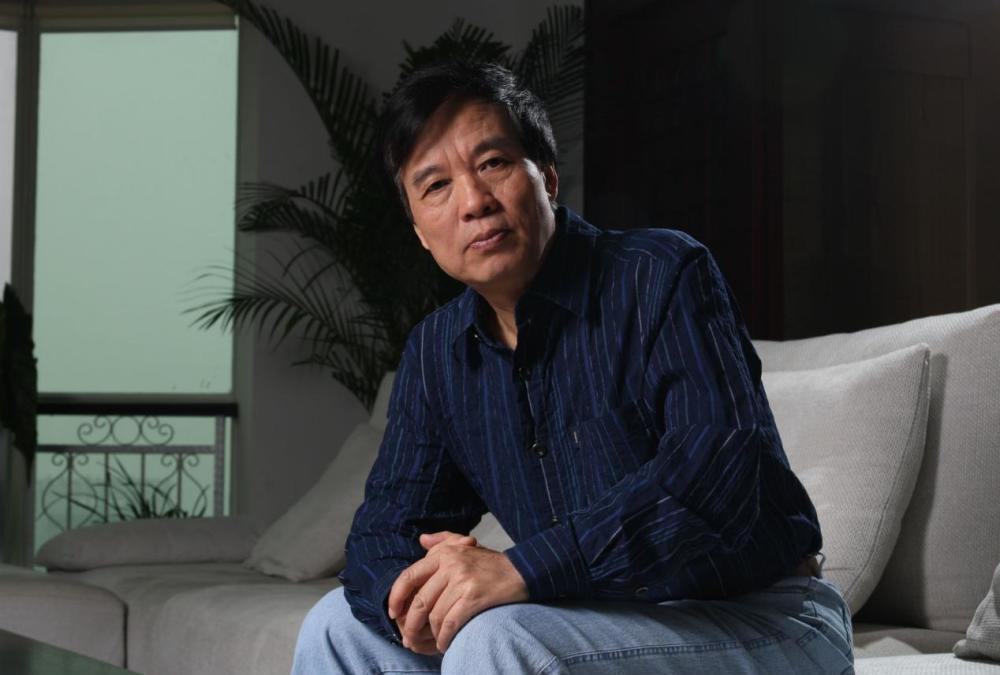On the evening of December 16, the major revolutionary historical drama "Fragrant Mountain Leaf Zhenghong" was successfully concluded on CCTV. According to China's audiovisual big data, the show's ratings have ranked first in the country for three consecutive weeks, especially attracting young audiences to chase the show, triggering strong repercussions inside and outside the industry. At the end of the show, Sheng Heyu, chief screenwriter of "Fragrant Mountain Leaf Zhenghong", said in an interview that this is a creative journey of "shouzheng innovation" and "vigorous national founding weather" is the theme that this play wants to present. At the same time, Sheng Heyu is also pleased to say that the perspective of young audiences is turning to historical dramas with real historical patterns, aesthetic values and cultural tastes.

"Speaking of the original intention or main purpose of the creation of this play, if it boils down to one sentence, it is to present the founding weather of the People's Republic of China when it was founded." In Sheng Heyu's view, the historical node presented in the play is precisely the era that washed away the national shame of the past century, stood up Chinese people, and began to build an era that truly belonged to them. The title of "Fragrant Mountain Leaves Are Red" is poetic and symbolic. Sheng Heyu said that the title of the play came out of his mouth, "as if it has existed there for a long time, this is really an accidental phenomenon in my artistic creation career." This title gives this theme a poetic meaning, and 'positive red' is the process, which can better present the founding weather of the country that is full of vigor and vigorous growth! ”
As the chief screenwriter, Sheng Heyu summarized the artistic characteristics of this drama with "Shouzheng Innovation". "The so-called observance of righteousness means that we must maintain the political, serious, and authoritative nature of major revolutionary historical themes; and we have made many attempts at innovation." For example, he said, "First of all, it is to change the retrospective summary style to the ongoing style, so that the audience can feel more immersed." For example, when we write about the Battle of the River Crossing, the rise and fall of the river and the changes in the enemy situation are all happening, and the screenwriter should follow the development of the plot, not be 'confident'. The change of the creator's perspective will make our narrative more realistic and vivid. ”
Secondly, while laying out major events, Sheng Heyu pays attention to highlighting the emotions of the characters, so that each character has a vivid side. "Our characters, whether they live in the height of the temple or far away from the rivers and lakes, should be expressed through emotion." There are many scenes in the play, which are emotional. For example, the separation and reunion of the guerrilla leader Zhang Shuhua's family; the mother of political commissar Wang Kaishan left a note and waited for her son to return every day under a big tree at the mouth of the village; Mao Zedong visited Liu Yazi and waited outside the door until Liu Yazi woke up from a nap. Sheng Heyu said that these plots "exist in the real history, but they are only excavated and slightly artistically processed." Sheng Heyu emphasized the importance of feelings, "I have always believed that feelings are spring rain, which will make major historical themes warm. ”
Emotional performance does not necessarily have to have an emotional plot or scene, and the lines are also important. For example, in the first episode, when talking about the comparison of the strength of the enemy and us, Mao Zedong said, "Half of the country cannot contain the Feelings of serving the country of the Chinese Communists, and we must fight across the Yangtze River to liberate all of China!" Sheng Heyu said that these lines are not simple narratives, but contain strong emotional colors." In addition, the details of Chairman Mao's letter to Liu Eryong, a guard soldier in this drama, make people move, warm, and even feel a touch of elegance. Sheng Heyu said that this is a work of macro narrative, but the more a work of macro narrative, the more brilliant details must be collected as much as possible.
As a canonical drama that shows the great history, "Fragrant Mountain Leaves Zhenghong" portrays some fictional characters such as Jiang Laiyang, Xiao Jingxian, Liu Eryong, Zhang Shuhua, Zhao Yutian, and Huang Amao. Sheng Heyu said bluntly that history is created by the masses of the people, so how can there be no emergence of the masses of the people in such a major historical-themed TV series as "Fragrant Mountains and Leaves Are Red"? "These fictional figures are the representatives of the countless masses of the people who have truly existed in history. Their role is by no means merely auxiliary, they are also protagonists. ”
As a national first-class screenwriter, Sheng Heyu created works such as the TV series "Towards the Republic" and the movie "Night Feast". How to let young people enter history and love to watch historical dramas? This is a concern of the industry. In Sheng Heyu's view, there are many masters of writing historical dramas in our country, "Like Mr. Long Pingping and his "Age of Awakening", I like it very much. Sheng Heyu admitted that those so-called historical dramas with strange powers and chaotic gods or imperial power as the narrative axis have made our young audiences feel tired, "Their perspective is turning to historical dramas with real historical patterns, aesthetic values, and cultural tastes, which is a gratifying reality." ”